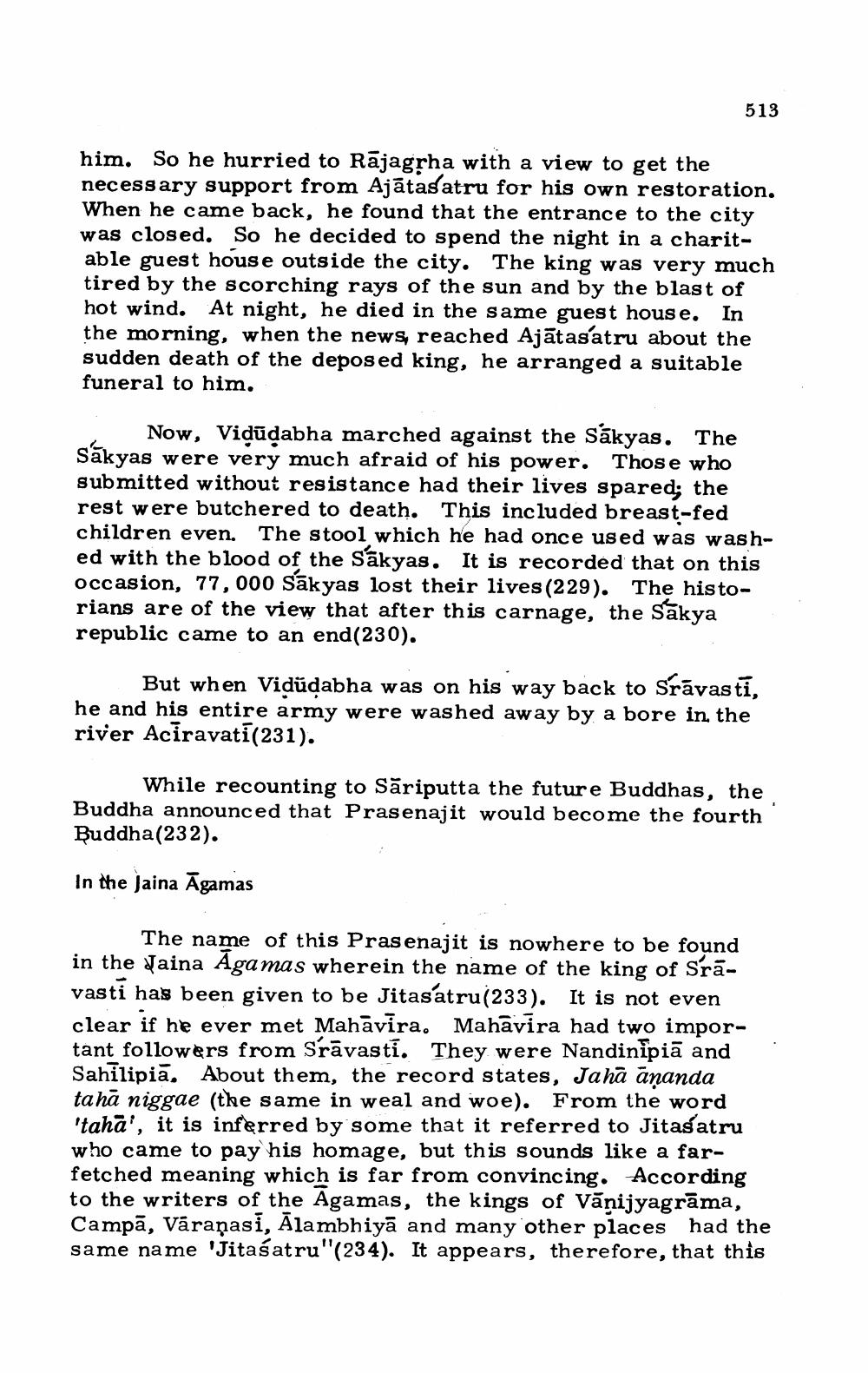________________
513
him. So he hurried to Rājagrha with a view to get the necessary support from Ajātas atru for his own restoration. When he came back, he found that the entrance to the city was closed. So he decided to spend the night in a charitable guest house outside the city. The king was very much tired by the scorching rays of the sun and by the blast of hot wind. At night, he died in the same guest house. In the morning, when the news, reached Ajātasatru about the sudden death of the deposed king, he arranged a suitable funeral to him.
Now, Viļūdabha marched against the Sákyas. The Sākyas were very much afraid of his power. Those who submitted without resistance had their lives spared; the rest were butchered to death. This included breast-fed children even. The stool which he had once used was washed with the blood of the Sakyas. It is recorded that on this occasion, 77,000 Sāk yas lost their lives (229). The historians are of the view that after this carnage, the republic came to an end(230).
a
But when Vidüqabha was on his way back to Srāvasti, he and his entire army were washed away by a bore in the river Aciravati(231).
While recounting to Sariputta the future Buddhas, the Buddha announced that Prasenajit would become the fourth Buddha(232).
In the Jaina Āgamas
The name of this Pras enajit is nowhere to be foạnd in the Jaina Aga mas wherein the name of the king of Srāvasti has been given to be Jitas'atru(233). It is not even clear if he ever met Mahāvira. Mahāvira had two important followers from Srāvasti. They were Nandinipiā and Sahilipia, About them, the record states, Jahā ananda tahā niggae (the same in weal and woe). From the word 'taha', it is inferred by some that it referred to Jitas atru who came to pay his homage, but this sounds like a farfetched meaning which is far from convincing. According to the writers of the Agamas, the kings of Vānijyagrāma, Campā, Vārañasi, Ālambhiyā and many other places had the same name 'Jitaśatru"(234). It appears, therefore, that this




